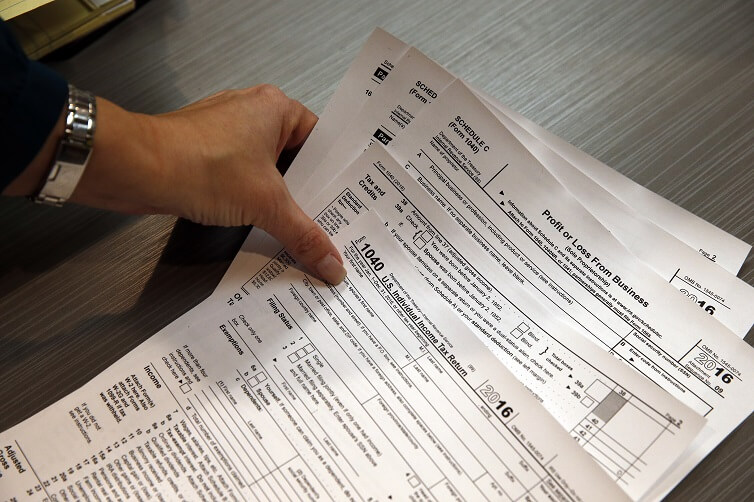Remembering who pays Uncle Sam this year’s Tax Day

With April 15 falling on a Saturday this year, Tax Day is on Tuesday, April 18. While it may not be everyone’s idea of a good time to finalize last-minute tax returns over the weekend or even on a Monday evening, the government needs our money to function. Taxes contribute to goods and services that impact our daily lives, including our national defense, physical infrastructure, and education. Yet even as we all do our duty, feelings of civic responsibility bump up against an all-too-common narrative that everyone else is dodging their responsibility to pay their fair share.
This fear is overblown when it comes to most Americans, though there are some privileged exceptions. Much of the public debate around government programs either alludes to or directly raises the question of whether “other people” are doing their part. Some, among them Robert Rector of the Heritage Foundation, question whether immigrants or the poor pay enough into the system relative to what they take. Then there’s the concern that those at the top of the income ladder hire accountants and lawyers to avoid paying their fair share—though some policymakers regard this tax avoidance as “smart.” And, of course, there are profitable corporations that pay minimal taxes such as General Electric Co., which has paid just a 5.2 percent tax on its profits over the past 15 years.
Looking for those among us who are shirking their civic duty is a national pastime, but it turns out the evidence doesn’t fully support this view. Political scientist Vanessa Williamson’s new book, Read My Lips: Why Americans are Proud to Pay Taxes, is grounded in quantitative and qualitative evidence that shows that Americans from all walks of life not only contribute to the common good but also believe paying taxes is their civic duty. Williamson, a 2014 Equitable Growth grantee and now a fellow at The Brookings Institution, finds that Americans see paying taxes as an ethical act that we owe to our nation.
Learning this, it seems that the current national conversation on taxes—and subsequent public spending—doesn’t do taxpayers justice. Indeed, taking into account all kinds of taxes paid each year at the federal, state, and local level, this civic exercise is very much an equal-opportunity activity. In 45 states and the District of Columbia, there’s a sales tax on most nonessential items. There are federal payroll taxes borne by employees and employers. There are state and local real estate taxes, state and local income taxes (in 43 states and more than a thousand localities, ranging from cities to counties to school districts), and an array of federal income taxes—all of which affect everyone in the country to varying degrees. According to the Institute on Taxation and Economic Policy, low-income families pay about 7 percent of their income toward sales and excise taxes, compared to 1 percent among high-income families. Williamson documents that roughly half of all taxpayers whose biggest tax burden is the sales tax correctly perceive it to be so.
Still, the perception that some taxpayers are paying less than they used to is grounded in evidence for some affluent households. While the federal tax code is progressive, it has become less so over time. Policymakers have sharply reduced the rate paid by the highest income earners, from 92 percent in 1952 to 70 percent in 1960 to 39.6 percent today. At the same time, the composition of all taxes paid has shifted over the same period from income taxes to other, less progressive taxes such as sales taxes and payroll taxes—the latter of which is capped for 2016 at $118,500 for Social Security.
Restoring more progressivity to the federal tax code would be good for the U.S. economy. Economists Emmanuel Saez at the University of California, Berkeley, Thomas Piketty at the Paris School of Economics, and Stephanie Stancheva at Harvard University find that raising top rates would not lower productivity. Instead, they argue that there’s room to tax the top income earners more because it would encourage a more efficient use of firms’ resources toward productivity-enhancing activities and away from economically inefficient sky-high salaries.
As members of Congress and President Trump consider comprehensive tax reform, they should keep this background in mind. The lack of real income gains from overall U.S. economic growth for too many Americans, combined with concerns about the distribution of taxes provide an important backdrop for this debate. Without clear facts and a common baseline of reality, policymakers could end up seeking to solve problems that do not exist and failing to address problems that do exist.
